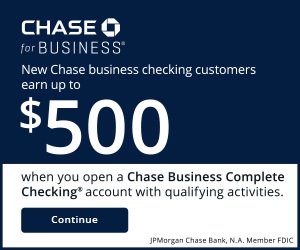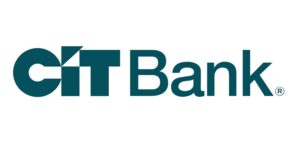 When you start your own business, it’s important to begin taking control of your finances. Whatever account you choose with whoever you decide to bank with makes a large difference in how you operate. It’ll help you keep track of daily tasks, such as logging your expenses.
When you start your own business, it’s important to begin taking control of your finances. Whatever account you choose with whoever you decide to bank with makes a large difference in how you operate. It’ll help you keep track of daily tasks, such as logging your expenses.
It can also help you create a budget to handle all your future business needs. If you want to learn more about what you can gain from having a business account, you can read our review on Advantages of a Business Checking Account.
Whether you’re a sole proprietor or trying to start a large corporation, a business account can help you manage it. Be sure to keep reading to learn all about How to Open a Business Checking Account.
How to Open a Business Checking Account
 1. Determine What Accounts You Need
1. Determine What Accounts You Need
For any sort of endeavors you want to embark on, you’ll need the right tools, and the same goes for the way you manage your business finances. The first step is to figure out what types of business accounts you may need.
For most businesses, the most common one to open is a business checking account. It manages all your working capital expenses, and gives you access to a debit card and physical checks. This account is used for moving money around quickly, and typically is the most flexible type of account.
As one of the nation’s largest banks, Chase offers great promotions when you open a business checking account with them. To learn more, be sure to read more our Chase Business Checking Accounts Guide.
The next account that businesses open after their checking is their business savings account. It’s a way for them to earn interest on the extra income that they’ve earned, so they have a security blanket to fall on in case anything goes wrong.
The only drawback is that they tend to limit their amount of transactions, so the funds aren’t as liquid as a checking account. Afterwards, you can open a business certificate of deposit (CD) account. It’s a long-term business savings account that typically earns a higher interest rate than a traditional savings account.
Business CDs typically have specific terms that can range from 1 month to 10+ years. This means that business CDs can earn small businesses more money when cash is idle, but it reduces liquidity since you’re unable to withdraw it until the term is up.
2. Select a Bank
The financial institutions you choose also play a major role in how your money moves. If you are currently part of a credit union, many of them do not offer a business checking account at all.
The advantage of being part of a large bank is that many of them want to create a business relationship and have programs to help you manage your money and take care of your credit. Although you may have your own personal bank, be sure to explore all your options to maximize your profits.
Consider the cost of monthly service fees, deposit fees, and ATM fees when choosing a bank for your business, and make sure your bank offers a good online experience, including online bill pay and mobile deposits.
Ensure that your bank and bank accounts can integrate with the leading accounting software to easily keep track of your income and expenses.
If you’re expecting to have more than just depository accounts, make sure the bank you’re choosing offers small business loans, lines of credit, and perhaps some credit cards. If you currently have an account but are looking to switch, be sure to read out review on How to Switch Banks.
3. Be Aware of Fees
Some banks offer free business bank accounts while others charge fees. Usually fees can be waived if you meet certain criteria, such as with a minimum balance, opting into eStatements or online bill pay, and having transaction limits. These fees are different for each business bank account.
If you’re browsing around HMB for the perfect business account, you can usually find out how to avoid these fees. For checking accounts, fees you may expect to find consist of monthly service, minimum balance, transaction, cash deposit, ATM, and wire transfer fees.
For saving accounts, there are usually monthly service, minimum balance, monthly balance transfer, cash deposit, and wire transfer fees. For CDs, you may have early withdrawal and broker fees.
4. Create a Business Name
If you decide to go beyond a sole proprietorship and decide to create an business that is not under your name, you should be sure that it is unique to you. To check if that name is free and not already trademarked, you must check with the U.S. Patent and Trademark office.
That is not the only listing of official names, so be sure to do your research to see if anyone on the internet has taken a similar name to avoid confusion. Once you have done so, you must visit your local government office where the business is located, to pay the registration fee to create a new business.
The location is based on where your business has their headquarters, regardless of your personal address. You should also protect your new business with trademark protection. If you run into any problems with your business, you can consult our review on Simple & Reliable Solutions for Your Business.
 5. Prepare your Paperwork
5. Prepare your Paperwork
Although this is incredibly tedious, it is still necessary to make sure you have all the paperwork completed and filled out to avoid making multiple trips to the bank.
Typically they’ll ask for your tax ID number some form of identification to verify who you are. To avoid a tax ID number, you must file a request with the IRS.
Depending on the account, you’ll need additional documentation, such as as assumed name certificates, or business documents with a state agency if you are starting a corporation.
Be sure to have all the basic business information written down and documented, such as your address, where you plan to sell, suppliers, you can never be too thorough.
6. Figure Out Transaction Process
Now that you’ve established you’ve secured your business and create the account, be sure to maximize all the features of your bank. If you want to learn more about what they can do for you, you can read our review about Ways to Get the Most Out of Your Bank.
A merchant account grants you the ability to accept payments, such as a credit card merchant to accept credit card payments. They’ll help streamline the payment process, and make business run smoothly and swiftly.
Many business are opting for online payment systems, such as PayPal or Square Register which makes it simple as owning a tablet to complete transactions. It’s important to decide your merchant account because it can help you keep track of trends and see visualize the effective of certain business strategies so you know what works for your business.
Recommended Business Checking Accounts
 • Open a Huntington Unlimited Plus Business Checking Account • Earn $1,000 bonus when you open a Huntington Unlimited Plus Business Checking account and make total deposits of at least $20,000 within 30 days of account opening. • Maintain minimum daily balance of $20,000 for 60 days after meeting deposit requirement. • The $1,000 bonus will be deposited into your account after all requirements are met. • Enjoy overdraft protection with no annual fee or deposit-to-deposit overdraft protection with no transfer fee! • Bonus Service. Choose one bonus service such as fraud tools, discounts on payroll services, or Huntington Deposit Scan® • Ideal for businesses with higher checking activity and greater cash flow needs. |
 • Open a Huntington Unlimited Business Checking Account • Earn $400 bonus when you open a Huntington Unlimited Business Checking account and make total deposits of at least $5,000 within 60 days of account opening. • The $400 bonus will be deposited into your account after all requirements are met. • Get Overdraft Protection Account with no annual fee, or Deposit-to-Deposit Overdraft Protection with no transfer fee. • Enjoy unlimited transactions. And up to $10,000 in cash or currency deposits monthly in-branch or at an ATM at no charge. • Designed for businesses with higher checking activity and greater cash flow needs. • Bonus service. Choose one bonus service such as fraud tools, discounts on payroll services, or Huntington Deposit Scan®. |
 |
 |
Bottom Line
Whether your a small business or a large corporation, business bank accounts are important and necessary tools to managing your money. They’ll help you keep track of your current business funds to help your propel forward in all your financial endeavors.
Creating separate business accounts sets it up to be a different entity, helping you organize everything in your personal life and professional life as well!
Once you have a business bank account open, you may want to see our list of Best Business Credit Cards to earn rewards and help boost the line of credit for your business.
If you’re ready to start looking for the perfect business bank account to open, make sure to check out our Best Business Bank Bonuses from our list of nationwide business accounts!




